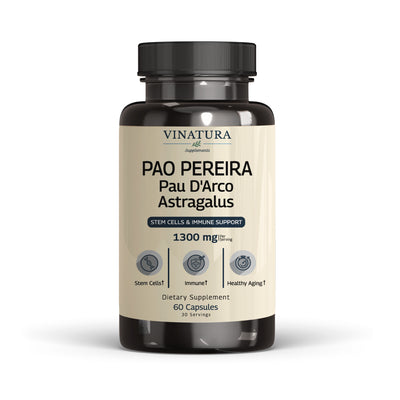
Green Tea Extract Dosage Per Day: How Much Should You Use?
Green tea extract is one of the supplements that is receiving a lot of attention at the moment, especially for anyone who wants to lose weight, fight oxidation, boost energy, and increase alertness.
However, not everyone is suitable to use it and can use it as much as they want because if used incorrectly, you may experience various health issues. This article will explain the appropriate daily dosage of green tea extract along with useful information related to how to choose the product, how to use it, and other notes. Don't miss it!
Before exploring further, please read the disclaimer located at the end of this webpage.
Key Takeaways
- Green tea extract is suitable for most users, except for certain groups such as pregnant and lactating women, children under 18 years old,...
- The allowed dose is no more than 800 mg/day.
- Prioritize choosing products with a transparent ingredient list, clear EGCG standardized and reputable brands,...
What Is Green Tea Extract?
Green tea extract is derived from Camellia sinensis L., which is a concentrated form of biological essence - beneficial polyphenols from green tea leaves (Camellia sinensis), typically EGCG, caffeine, L-theanine, etc [1].
This product is often added to dietary supplements (in the form of capsules/tablets, powders, solutions) or skin care products.
People love green tea extract for its antioxidant, anti‑inflammatory effects, and its support for metabolism, fat burning, and weight management,... In addition, the nutrients in green tea leaf extract can also relax the mind, improve concentration and cognition effectively.
Why Should You Use Green Tea Extract?

Green tea extract is an ideal choice for those who want to maximize the benefits of green tea thanks to its higher active ingredient content (including EGCG, caffeine, and catechins). In particular, the product is quite popular in the United States [1].
For example, with just 1 capsule, 1 drop, or 1 spoon of powder, you can get the amount of EGCG equivalent to many cups of tea.
In addition, products containing green tea extract are often free from tannins - a substance that often irritates the stomach if those with sensitive constitutions use green tea leaves.
In particular, the way to use green tea extract is very simple: simply take it with water (if in tablet form) or mix it with water, smoothies, juices,... so it is very suitable for busy people who do not have much time [2].
However, if you take a larger amount of green tea extract than necessary, you may experience some mild side effects such as lightheadedness, insomnia, stress, rapid heartbeat, etc. Because green tea extract contains quite a lot of caffeine.
In addition, in the market, there are many different brands of green tea extract, so the quality is not consistent.
Therefore, to ensure safety, you should prioritize choosing products made from organic green tea extract with no pesticides; clearly stating the standardized EGCG and caffeine content; having quality certification from a third party (NSF, GMP, independent laboratory testing, etc.); and having a reputable brand, highly appreciated by many customers.
Recommended Green Tea Extract Dosage Per Day
1. General Guidelines
The common dosage is 250 - 500 mg of green tea extract/day with a standardized EGCG concentration of 40 - 50%. For pure EGCG, the intake should not exceed 800 mg per day - this is the level recommended by EFSA (European Food Safety Authority) to avoid affecting the liver [4].
2. According to Purpose
In addition to the recommended safe dosage, you can also base it on your own usage purpose to determine how much to use. For example, if you want to support fat burning and weight loss, consider 150 - 300 mg EGCG/day (combined with 150 mg caffeine/day), used before exercise [3].
Or if you want to support cardiovascular health, a dosage of 300 mg/day with EGCG around 150 - 300 mg/day is the recommended level [4].
In general, it is best to consult a doctor or nutritionist before using. At the same time, you should combine it with a scientific diet and lifestyle to increase effectiveness.
How to Read Supplement Labels

Understanding the information on the label of dietary supplements is the key to helping you choose the right product for your needs. At the same time, you use the right dose, the right goal, and safety, bringing many practical benefits to your health.
Below is the information you should know when learning about products containing green tea extract:
Prioritize products that are standardized for EGCG (labeled "standardized") to easily estimate how many mg of each nutrient.
Calculate the EGCG content based on the standardization % level. For example, a product labeled "Green Tea Extract 500 mg, standardized to 50% EGCG" means that for every 500 mg of green tea extract, you will receive 250 mg of EGCG.
Some products may add caffeine to improve effectiveness, so check the label carefully beforehand to avoid unwanted side effects.
Avoid products with unknown EGCG/caffeine ratios if you need a specific dose for weight loss, antioxidant goals, etc.
Be mindful when choosing products that use proprietary blends or combine multiple herbs. These formulas often list only the total weight of the blend without disclosing the exact amount of each ingredient, including green tea extract. This makes it difficult to know how much EGCG or caffeine you are actually consuming.
When shopping, always check the Supplement Facts panel carefully. For example, if a product states "Green Tea Extract 250 mg, standardized to 45% EGCG," you can easily calculate that it provides about 112.5 mg of EGCG.
In contrast, if a product simply lists "Green Tea Extract 250 mg" without mentioning the standardization percentage (such as EGCG, catechins, or polyphenols), it becomes difficult to determine whether the dosage fits your intended purpose.
What Happens If You Take Too Much?

Although green tea extract has many benefits, overdose – especially over a long period of time – can lead to serious side effects. These include:
- Liver damage.
- Nausea.
- Diarrhea.
Reduced iron absorption, leading to iron deficiency.
- Headache.
- Dizziness.
- Insomnia.
- Rapid heartbeat.
If you experience these unusual symptoms, you should see a doctor immediately and stop using the product.
Who Should Avoid or Be Cautious?
- Green tea extract is not suitable for the following subjects:
- Pregnant and lactating women.
- People who are suffering from or have a history of liver disease.
- Children under 18 years old.
- People who are sensitive to EGCG or caffeine.
- Those with heart conditions under treatment.
- People who are taking prescription drugs such as blood pressure medication, anticoagulants,...
Best Practices for Taking Green Tea Extract
In addition to using the right type and dosage, to maximize the effects of green tea extract, you should:
- Use after meals - on a full stomach to avoid stomach irritation.
- The dosage should not exceed 800 mg/day, but should not be taken at once but divided into 2-3 times/day, to limit pressure on the liver.
- Limit use before bed because it will make it difficult to sleep.
- Combine with a healthy diet and lifestyle to improve effectiveness.
Conclusion
Using the right dose of green tea extract every day is the key to optimizing health benefits while ensuring long-term safety. Depending on your goals, contact your doctor or nutritionist to adjust the appropriate dosage.
At the same time, choose products with clearly stated origins, EGCG ratio, and caffeine content to avoid unwanted side effects. Remember: more isn’t always better.
Testimonial Disclaimer
*The testimonials presented on this website are provided by individuals based on their personal experiences with our products. These testimonials represent individual opinions and experiences, which may not be typical or applicable to all users of our products. Results may vary depending on a variety of factors, including individual health, lifestyle, and adherence to product usage instructions.References
- [1] Chacko, S. M., Thambi, P. T., Ramadasan Kuttan, & Ikuo Nishigaki. (2010). Beneficial effects of green tea: A literature review. Chinese Medicine, 5(1), 13–13. https://doi.org/10.1186/1749-8546-5-13
- [2] Green Tea Pills (Supplement): Uses & Side Effects. (2023). Retrieved June 30, 2025, from Cleveland Clinic website: https://my.clevelandclinic.org/health/drugs/20553-green-tea-oral-dosage-forms
- [3] Yan, R., & Cao, Y. (2025). The Safety and Efficacy of Dietary Epigallocatechin Gallate Supplementation for the Management of Obesity and Non-Alcoholic Fatty Liver Disease: Recent Updates. Biomedicines, 13(1), 206. https://doi.org/10.3390/biomedicines13010206
- [4] Nguyen, K., & Examine.com. (2025). Green Tea Extract Health benefits, dosage, and side effects. Retrieved June 30, 2025, from Examine.com website: https://examine.com/supplements/green-tea-extract
Author

Product Disclaimer
Including an ingredient or study does not evaluate, endorse, or recommend any Vinatura product or any third-party product. Some ingredients discussed may not be used in any Vinatura product.
The content of the articles has not been evaluated by the Food and Drug Administration (FDA) and is not intended to promote or endorse any specific product. Any products sold on this website are not intended to diagnose, treat, cure, or prevent any disease.
Opinions and Endorsements
Any claims, statements, or opinions expressed in the articles are those of the author(s) and do not necessarily reflect the views or opinions of the manufacturers of the dietary supplement products. The products sold on this website are separate from the content of the articles and are not directly endorsed or associated with the information presented here.
Liability Disclaimer
The author(s) of the articles, website, and manufacturers of the dietary supplement products do not assume any liability for any potential consequences arising from the use of the information provided in the articles. Ingredient effects, dosages, and safety vary by individual, formulation, and context; some ingredients interact with medications or may be unsuitable during pregnancy or lactation. It is recommended that individuals consult with a qualified healthcare professional before making any dietary or lifestyle changes, including the use of dietary supplements.
Product Usage
Please refer to the product labels and packaging for specific usage instructions and guidelines for the dietary supplement products sold on this website.
Customer Support
For any concerns or questions regarding the dietary supplement products, please contact our customer support team, who will be more than happy to assist you.





Leave a Comment
Be the first to comment.
What do you think?